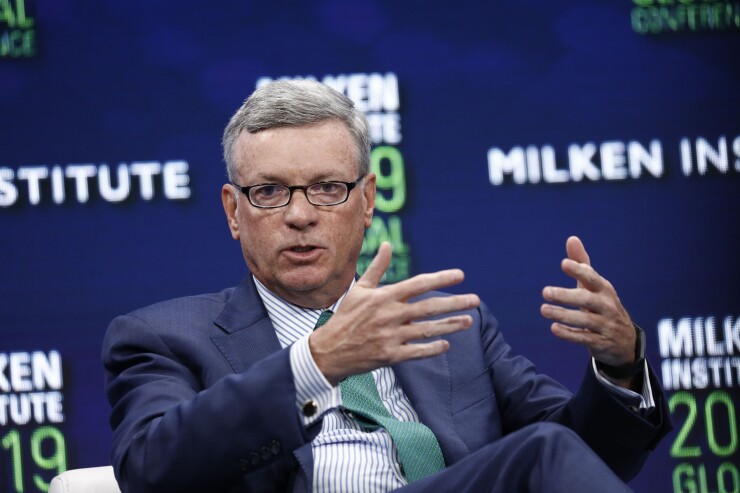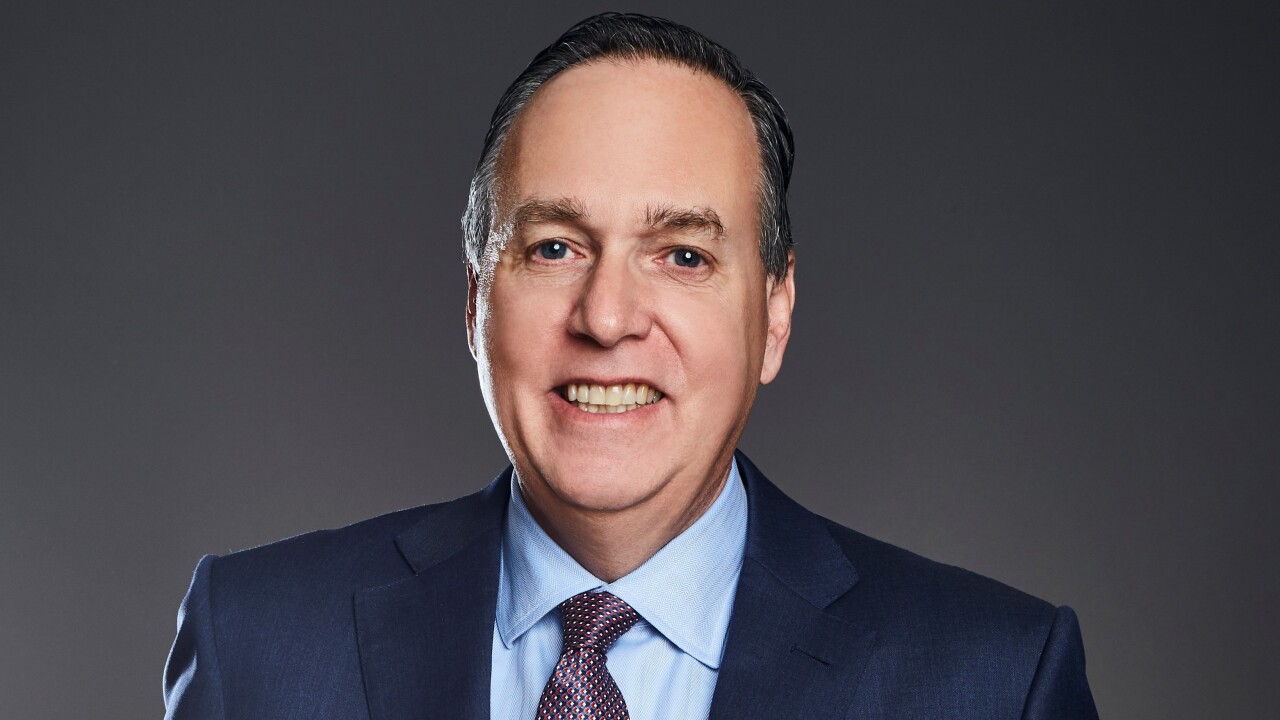Inflation is at four-decade highs and the U.S. economy could soon enter into recession, but Visa has not yet noticed severe weakness.
"We don't see any evidence of consumers pulling back in our markets," Alfred Kelly, Visa's chairman and CEO, said during Tuesday's earnings call.
Kelly cautioned that it's too early to draw any conclusions about the broader economy.
Visa reported revenue of $7.3 billion and earnings per share of $1.98 for the three months that ended June 30, up from $6.1 billion and $1.49 a year earlier. That was better than analysts' projections of $7.09 billion and $1.75, according to
Personal spending on travel and entertainment has bounced back to pre-pandemic levels and corporate travel is slowly recovering. Younger consumers are also providing a boost.
Visa reported earnings two days ahead of the second quarter
At the same time, the consumer price index increased 9.1% in June, above expectations and signaling the highest inflation rates in nearly 40 years. That has hurt earnings for retailers such as
The CPI report largely doesn't impact Visa's business, since most people don't buy houses or cars with credit cards, Kelly said. He acknowledged the concerns over high inflation or a recession while saying Visa has not spotted a downturn in payments yet. Visa noted forward booking for travel, for example, has remained strong.
"Growth has been stable and improving," Kelly said. "This has been the case for most of 2022 with no indication of any slowdown, including in recent weeks."
Travel spending has not returned to 2019 levels, but it has grown 40% over the past year, according to Kelly, adding other categories are demonstrating signs of strength.
Affluent spending at restaurants, for example, is 160% higher than the same period in 2019 in the U.S., and spending in luxury hotels in Europe is higher than it was in 2019. And the most recent quarter was the first that business travel spending has surpassed the same quarter in 2019. (Credit card companies often compare spending levels to 2019 as a way to track recovery from the pandemic.)
A research note from Jeffries stated that cross-border travel is showing continued improvement while U.S. travel spending is holding steady, with data-processing fees ($3.58 billion versus the $3.67 billion estimate of Wall Street analysts) being one of the few line items to show headwinds, which Jeffries said is likely a result of pressure from Russia's invasion of Ukraine. "Visa's business model has proven to be resilient in light of" global challenges, Kelly said.
Investors have been watching to see if inflation and other economic pressures will impact payment volume and the performance of the major card companies.
The banks that have
"Long-term inflation is not good for consumers or the overall economy," Kelly said, adding Visa will monitor economic impacts over the next year, and will adjust its strategy if it needs to. The company is better positioned to navigate an economic downturn than it was in prior recessions, Kelly said.
"I think we're a different company from past recessions, going back to 2008. We're stronger in debit, which tends to be the card of choice in a slowdown period," Kelly said. "We're stronger in e-commerce and benefited from reduction in cash usage during the pandemic. We have also added an emphasis on value-added services."
During the call, Kelly noted the recent passing of Visa founder Dee Hock on July 16.
"The whole Visa family mourns the loss of a true visionary and a great man," Kelly said.







